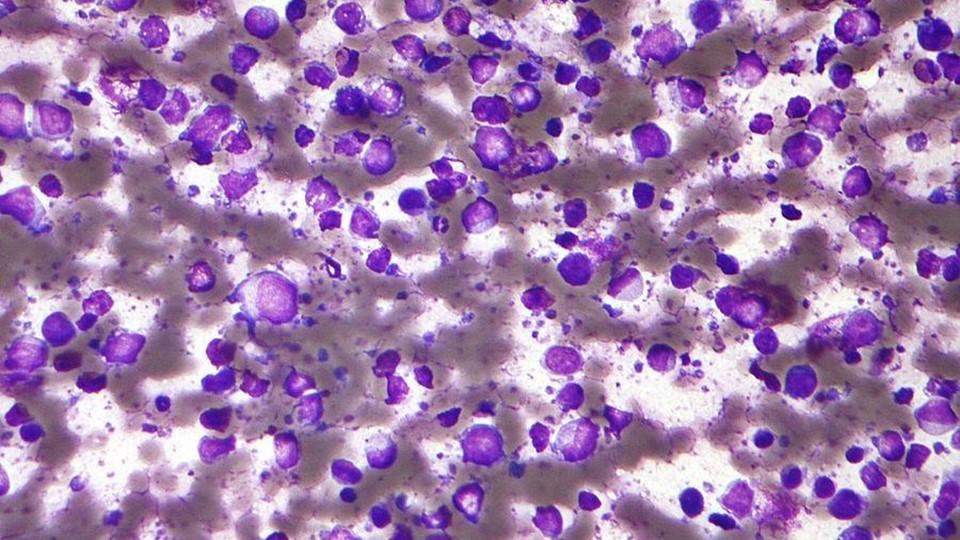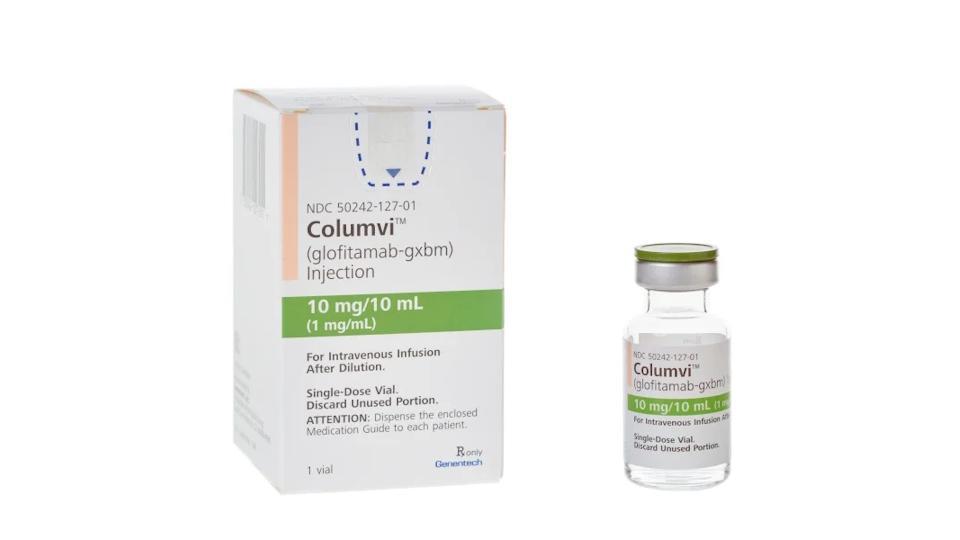AbbVie nears EU nod for DLBCL drug epcoritamab

AbbVie and Genmab’s would-be blockbuster epcoritamab has been recommended for conditional approval in the EU as a treatment for diffuse large B-cell lymphoma (DLBCL), an aggressive form of non-Hodgkin's lymphoma.
The EMA’s human medicines committee (CHMP) has issued a positive opinion on the CD20xCD3 bispecific antibody, with the proposed trade name of Tepkinly, for adults with relapsed or refractory DLBCL after two or more lines of systemic therapy. A final decision from the European Commission is due later this year.
The recommendation comes a few days after Roche’s rival CD20xCD3 bispecific Columvi (glofitamab) was approved by the Commission, also as a third-line or later therapy for DLBCL.
Epcoritamab was given accelerated approval for the same indication in the US in May, as Epkinly, while Columvi got a green light for DLBCL from the FDA in June, setting up a head-to-head battle in the market.
Analysts at Jefferies previously predicted that AbbVie and Genmab’s drug could make up to $2.75 billion at peak, which if achieved would help AbbVie offset some of the impact of biosimilar competition to immunology blockbuster Humira (adalimumab).
Some analysts expect epcoritamab to edge the battle with Roche’s drug, thanks to strong efficacy data and more convenient administration, as it can be given by subcutaneous injection, while Columvi needs an intravenous infusion. Roche, meanwhile, says the fixed duration of treatment with Columvi gives it an advantage.
Epcoritamab is also being prepared for filing in both the US and Europe, for a form of NHL called follicular lymphoma where, if approved, it will compete with another Roche CD20xCD3 bispecific called Lunsumio (mosunetuzumab).
All the bispecifics are being positioned as off-the-shelf alternatives to CAR-T therapies, like Gilead Sciences’ Yescarta (axicabtagene ciloleucel) and Novartis’ Kymriah (tisagenlecleucel), which have transformed the treatment of NHL, but have lengthy and complex manufacturing and administration procedures and require in-hospital care.
The CHMP has issued a positive opinion for epcoritamab in DLBCL on the strength of the phase 1/2 EPCORE-NHL-1 trial, which showed an overall response rate of 61% with the drug, including 38% complete responses, and a median duration of response of around 12 months.
As a rough comparison, in a similar trial population, Columvi had an overall response rate of 52%, with 39% complete responses, and 78% of them responding for 12 months or more.
AbbVie/Genmab and Roche are, meanwhile, working to move their bispecifics up the treatment pathway in DLBCL, with trials ongoing as second- and first-line therapy.
Roche is hoping to position Columvi as a companion to its CD79b-directed antibody-drug conjugate (ADC) Polivy (polatuzumab vedotin), which was approved by the FDA for first-line use in April.
Also coming through the industry pipeline for third-line DLBCL are CD20xCD3 bispecifics from Regeneron and Johnson & Johnson/Xencor, which are currently in late-stage development.













